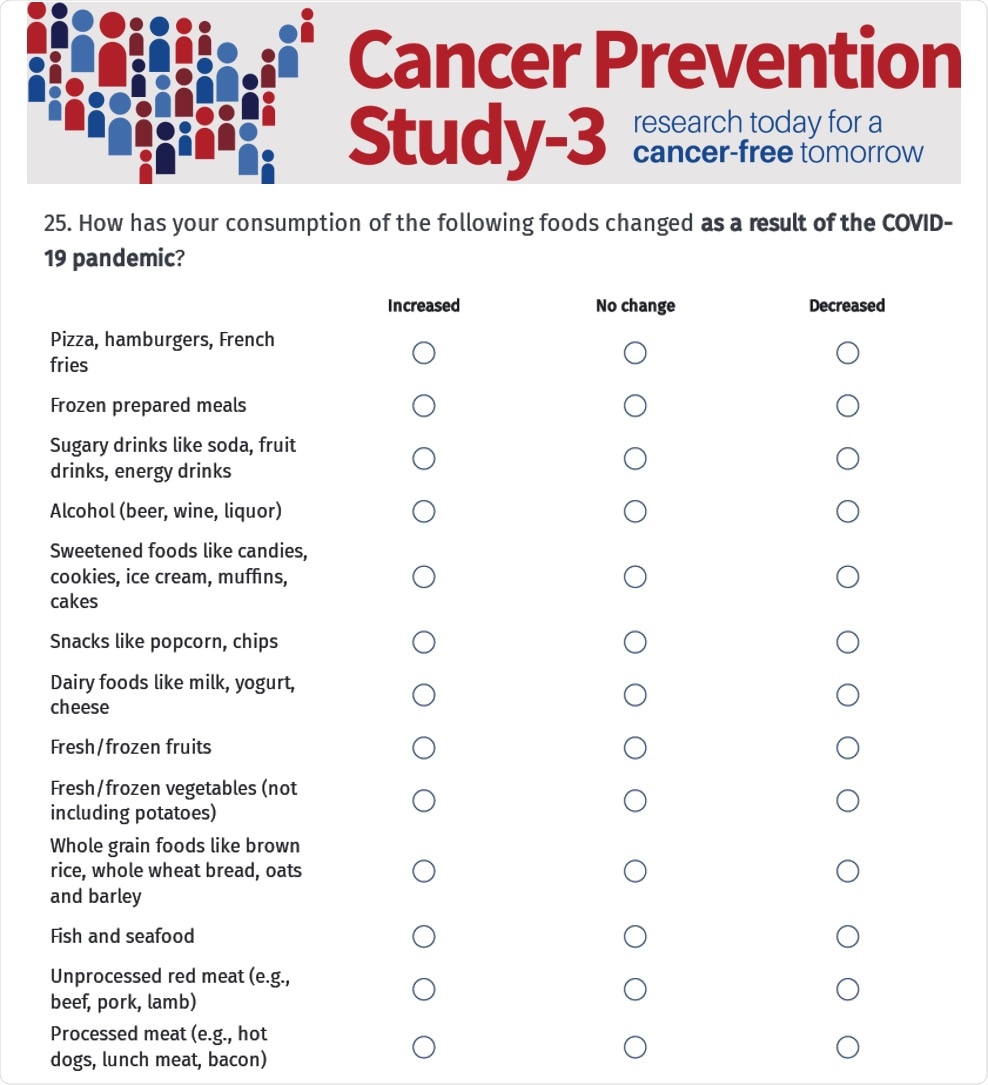As the severe acute respiratory syndrome coronavirus 2 (SARS-CoV-2) continued to spread throughout much of the world by the beginning of 2020, many individuals were told to stay home. In a recent study of more than 2,000 people living in the United States, researchers found that this abrupt change in our daily routines caused us to change our eating behaviors as well.
How the pandemic affected how we eat
At the beginning of the pandemic in the United States, hundreds of thousands of worried people began panic buying many items. These types of changes in consumer habits, coupled with serious occupational safety concerns within the agricultural industry, affected the entire food chain process. In a recent study conducted by the American Society for Nutrition (ASN), researchers aimed to understand how both changes in the food chain and consumer behaviors during the current pandemic have affected eating patterns.
In this study, a total of 2,335 participants tested a new online portal as part of the Cancer Prevention Study 3 (CPS-3), which included a survey on the coronavirus disease 2019 (COVID-19). In addition to asking the participants about their consumption of major food groups, the study also included COVID-related questions on how the pandemic has affected their physical and mental health, financial security, and access to healthcare.
As compared to food group responses that were obtained from participants in 2018, the researchers found that most participants who took the COVID survey did not report any changes in their food consumption habits during the pandemic. This finding suggests that the perception of our eating habits does not necessarily reflect the reality, as most participants actually reduced their consumption of many important food groups, particularly vegetables and whole grains.
Caroline Um, who is a postdoctoral fellow at the American Cancer Society, plans to present these findings at the virtual NUTRITION 2021 LIVE ONLINE conference that will be hosted by the ASN on June 7, 2021.

Sample Question. Image Credit: Caroline Um, American Cancer Society
Why have eating behaviors changed?
Many factors have contributed to this shift in the consumption of fewer healthy foods. The availability and access to healthy food products like vegetables and whole grains have often been dictated by the socioeconomic status and living situation of most Americans, which has deteriorated for many as a result of the COVID-19 pandemic.
Nutritional researchers and public health officials need to gain a better understanding of why these changes are occurring and how certain populations might be more affected by these conditions. This will not only assist in reversing the current shift towards unhealthy eating but will also provide information on how to prevent this type of shift in the future if a similar situation should ever occur again.
To further understand this change in eating habits, the researchers of the current study intent to periodically follow up with study participants on how their eating habits continue to adapt to our new shared reality.
Future studies by this group will also be focused on identifying certain psycho-social factors, such as mental health or financial stressors, that may also contribute to changes in the participants’ eating behaviors.